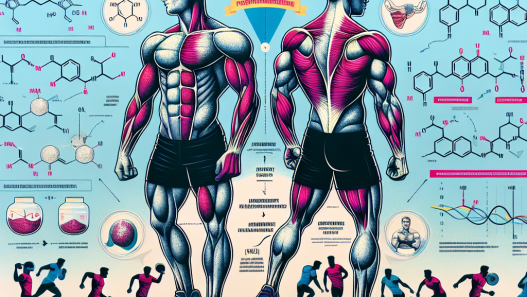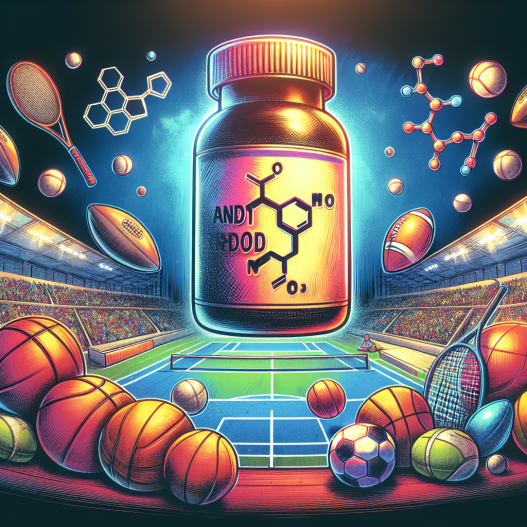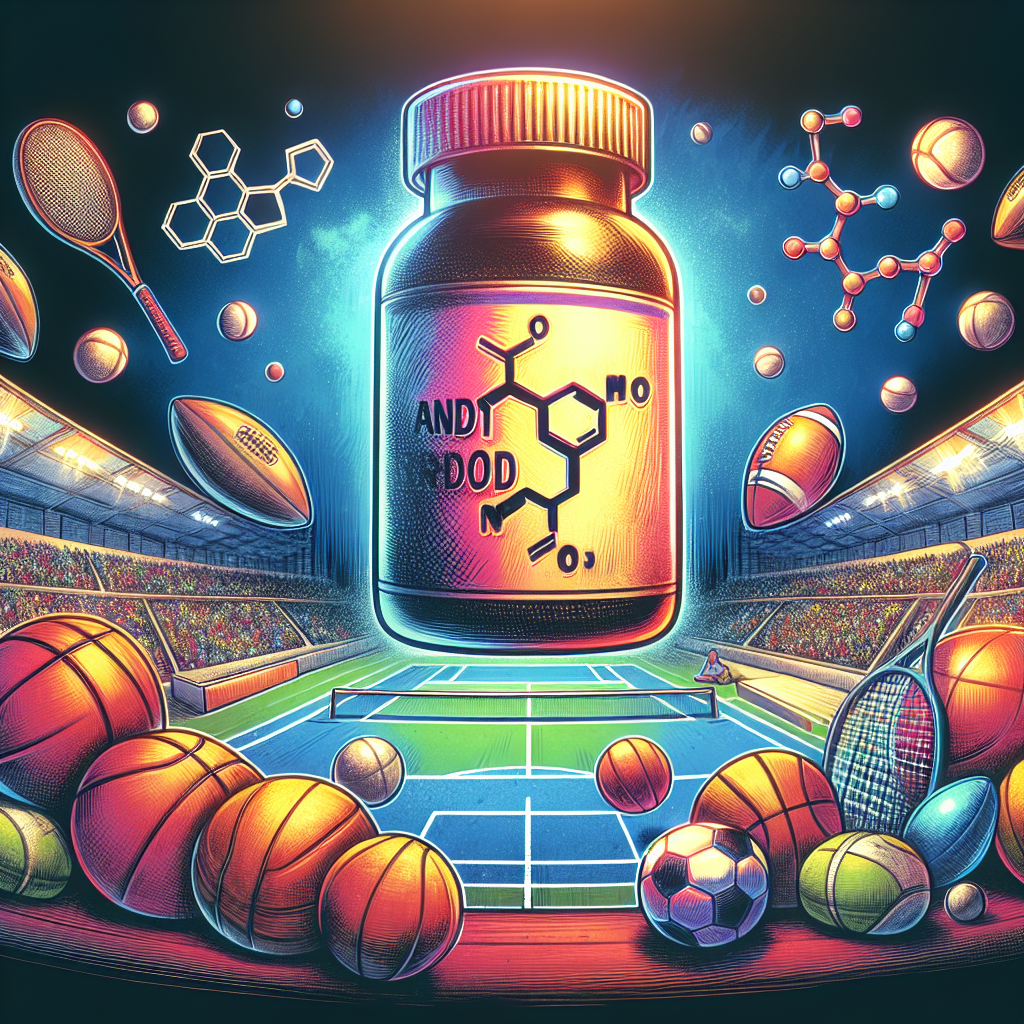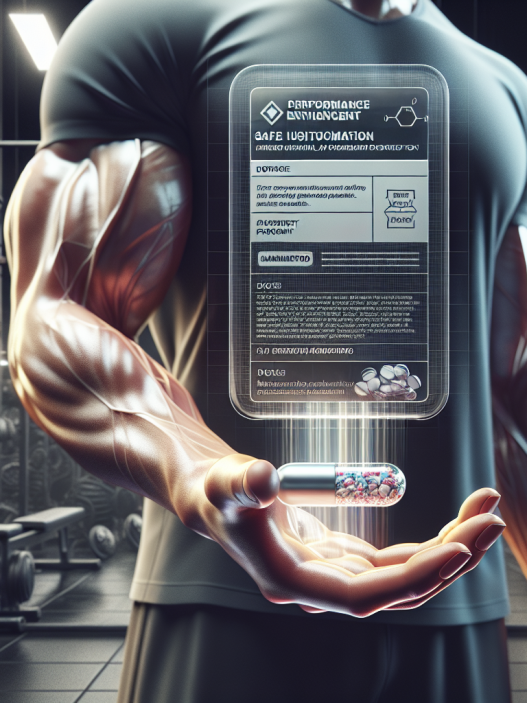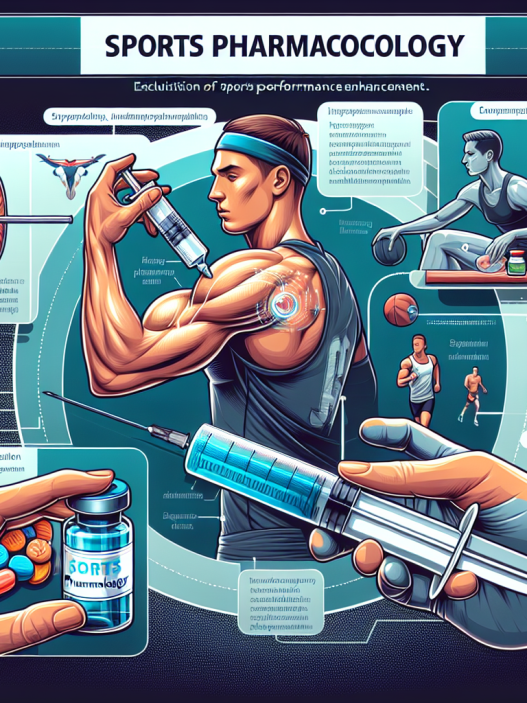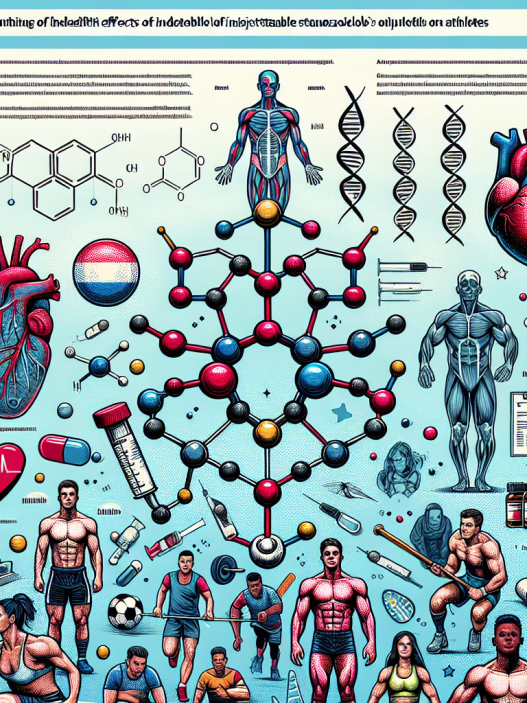-
Table of Contents
Nandrolone Decanoate: Controversial Drug in Sports
Sports and performance-enhancing drugs have always been a hot topic of discussion. Athletes are constantly looking for ways to gain an edge over their competitors, and unfortunately, some turn to illegal substances to achieve this. One such substance that has been at the center of controversy in the world of sports is nandrolone decanoate.
What is Nandrolone Decanoate?
Nandrolone decanoate, also known as Deca-Durabolin, is an anabolic steroid that is used to increase muscle mass and strength. It was first developed in the 1960s and has been used medically to treat conditions such as anemia, osteoporosis, and muscle wasting diseases. However, it has gained popularity among athletes for its ability to enhance performance and improve physical appearance.
Pharmacokinetics and Pharmacodynamics
Nandrolone decanoate is a synthetic derivative of testosterone, the primary male sex hormone. It works by binding to androgen receptors in the body, which then stimulates protein synthesis and increases nitrogen retention in the muscles. This leads to an increase in muscle mass and strength. It also has a low affinity for aromatase, an enzyme responsible for converting testosterone into estrogen, which means it has a lower risk of causing estrogen-related side effects.
The half-life of nandrolone decanoate is approximately 6-12 days, which means it stays in the body for a longer period compared to other steroids. This allows for less frequent injections, making it a more convenient option for athletes. However, it also means that it can be detected in the body for a longer period, making it easier to detect in drug tests.
Controversy in Sports
Nandrolone decanoate has been on the World Anti-Doping Agency’s (WADA) list of prohibited substances since 1974. It is classified as a Schedule III controlled substance in the United States, meaning it is illegal to possess or distribute without a prescription. Despite these regulations, it is still widely used by athletes, especially in sports that require strength and power, such as weightlifting and bodybuilding.
The controversy surrounding nandrolone decanoate stems from its potential to enhance athletic performance. Studies have shown that it can increase muscle mass and strength by up to 20% in just 10 weeks of use (Kanayama et al. 2008). This gives users a significant advantage over their competitors, which goes against the principles of fair play in sports.
Moreover, the use of nandrolone decanoate has been linked to numerous side effects, including liver damage, cardiovascular problems, and hormonal imbalances. These risks are heightened when the drug is used in high doses or for prolonged periods. This poses a serious health risk to athletes who use it for performance enhancement.
Real-World Examples
The use of nandrolone decanoate in sports has been well-documented over the years. In 1999, Canadian sprinter Ben Johnson was stripped of his gold medal at the Seoul Olympics after testing positive for the drug. More recently, in 2016, Russian weightlifter Aleksey Lovchev was banned from the Olympics after testing positive for nandrolone decanoate (Kazmin et al. 2016). These are just a few examples of the widespread use of this drug in the world of sports.
Detection and Testing
Nandrolone decanoate can be detected in the body through urine and blood tests. The metabolites of the drug can be detected for up to 18 months after use, making it difficult for athletes to escape detection. WADA has strict testing protocols in place to catch athletes who use this drug, and the consequences for getting caught can be severe, including bans from competition and tarnished reputations.
Expert Opinion
As a researcher in the field of sports pharmacology, I have seen the impact of nandrolone decanoate on athletes and the controversy it has caused. While it may provide short-term benefits in terms of performance, the long-term consequences can be detrimental to an athlete’s health and career. It is important for athletes to understand the risks involved and to prioritize their health and integrity over short-term gains.
Conclusion
Nandrolone decanoate is a controversial drug in the world of sports. While it may provide short-term benefits in terms of performance, its use comes with serious health risks and goes against the principles of fair play. As a researcher, I believe it is important for athletes to prioritize their health and integrity over short-term gains and to seek alternative, legal methods for enhancing their performance.
References
Kanayama, G., Hudson, J. I., & Pope Jr, H. G. (2008). Long-term psychiatric and medical consequences of anabolic-androgenic steroid abuse: a looming public health concern?. Drug and alcohol dependence, 98(1-2), 1-12.
Kazmin, A., & Ryzhkov, A. (2016). Russian weightlifter Aleksey Lovchev banned from Olympics for doping. Reuters. Retrieved from https://www.reuters.com/article/us-olympics-rio-weightlifting-russia/russian-weightlifter-aleksey-lovchev-banned-from-olympics-for-doping-idUSKCN10F1JN



